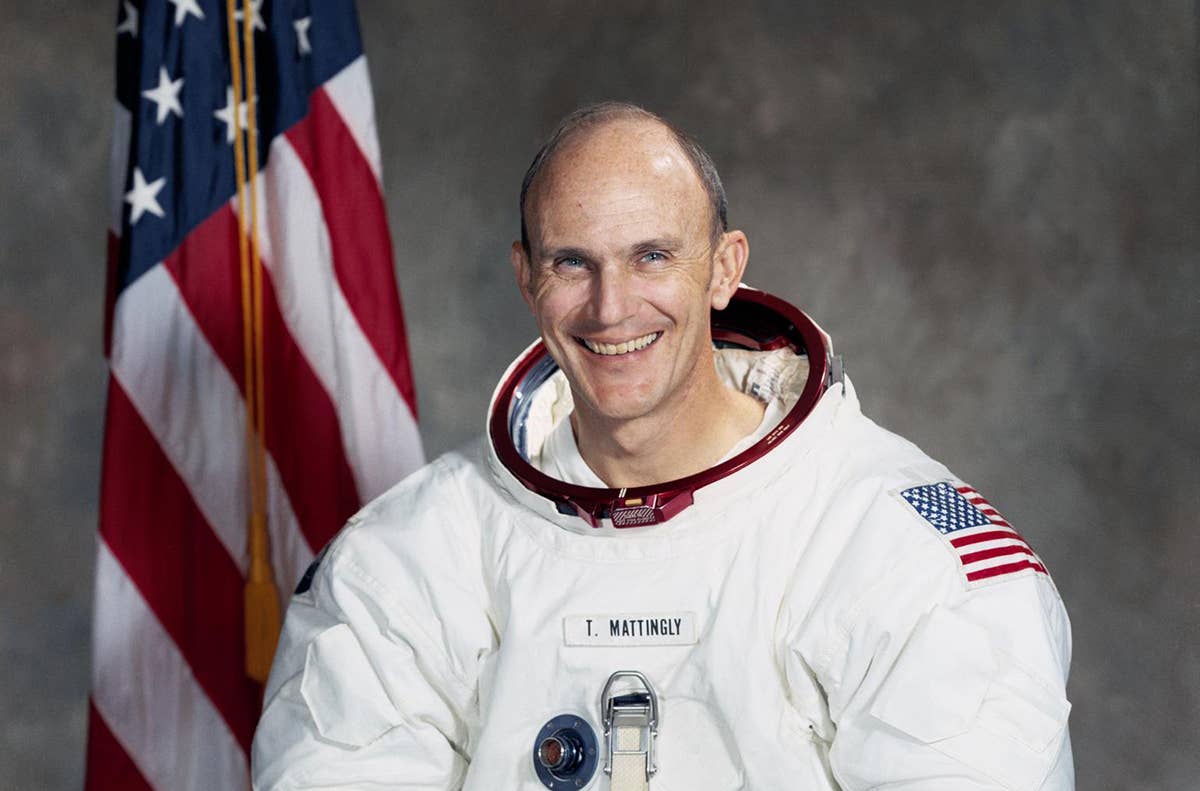Apollo Astronaut Ken Mattingly Dead at 87
Former NASA astronaut Ken Mattingly II, best known for helping the crew of Apollo 13 return to Earth safely in 1970, has died at 87.

Astronaut Ken Mattingly served as command module pilot for Apollo 16 and spacecraft commander for space shuttle missions STS-4 and STS 51-C. [Courtesy: NASA]
Former NASA astronaut Ken Mattingly II, best known for helping the crew of Apollo 13 return to Earth safely in 1970 after the loss of an oxygen tank in space doomed the lunar landing, has died at 87.
His cause of death on October 31 in Arlington, Virginia, was not released by NASA.
“Mattingly was key to the success of our Apollo program, and his shining personality will ensure he is remembered throughout history,” NASA Administrator Bill Nelson said in a statement that also called Mattingly “one of our country’s heroes.”
According to his NASA biography, Thomas Kenneth Mattingly II, who went by Ken or “TK,” was born in Chicago on March 17, 1936. He graduated from high school in Miami and earned a degree in aeronautical engineering from Auburn University in 1958.
He began his aerospace career as a Naval aviator, earning his wings in 1960. He flew multiple aircraft on multiple assignments, eventually joining the Air Force Aerospace Research Pilot School as a student. This led NASA to select him as part of the astronaut class of 1966. Before flying in space, Mattingly worked in the Apollo program as part of the astronaut support crew, taking leadership in the development of the Apollo spacesuit and backpack.
In 1970, Mattingly was slated to be aboard Apollo 13, however, he was exposed to rubella (also known as the German measles), which forced the space agency to remove him from the mission out of an abundance of caution. According to NASA, when the crew of Apollo 13 ran into trouble on its ill-fated mission, Mattingly ran scenarios on the ground that helped bring the crippled spacecraft and astronauts James Lovell, Jack Swigert, and Fred Haise safely home.
In director Ron Howard’s 1995 movie Apollo 13, Mattingly was played by Gary Sinise. One of the most poignant scenes in the film is when Mattingly climbs into the Apollo capsule mock-up to run scenarios to find a solution to address the emergency in orbit. When offered a particular flashlight to use, Mattingly declines it, saying it is not the same as the one the astronauts have aboard the spacecraft and it is important that he craft a solution with the same tools they have.
Mattingly would go on to serve as command module pilot for Apollo 16 and spacecraft commander for space shuttle missions STS-4, the fourth mission of the Columbia launched in 1982, and, the third flight of Discovery launched in 1985. The latter mission was the first to carry a Department of Defense payload and as such many details of the mission to this day remain classified.

Subscribe to Our Newsletter
Get the latest FLYING stories delivered directly to your inbox






